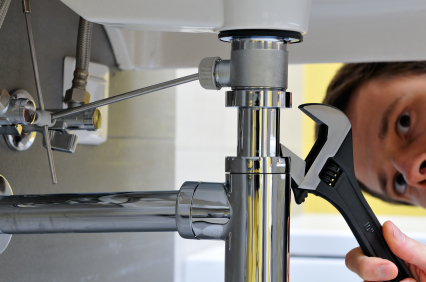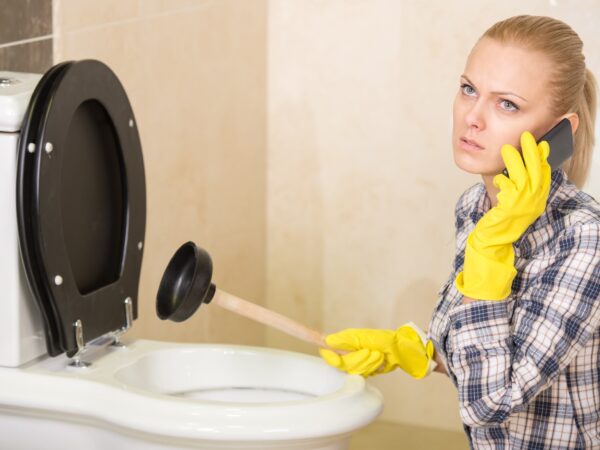Emergency Tips: What to Do Until Help Arrives
Emergency Tips: What to Do Until Help Arrives
Blog Article
Listed here underneath you can get some outstanding insights around What to Do During a Plumbing Emergency.

Pipes emergency situations can strike any time, creating anxiety and prospective damage to your home. Whether it's a burst pipe, a clogged drain, or a dripping tap, understanding how to manage the scenario till an expert plumbing arrives can conserve you from more issues. This short article provides essential emergency situation pipes pointers to aid you alleviate damages and gain back control during a plumbing crisis.
Turn Off the Water Supply
The first step in any kind of pipes emergency is to shut off the water supply. For localized concerns, such as a dripping faucet or toilet, turn off the shutoff near the component. When it comes to a major leak or ruptured pipe, locate your home's major water shut-off shutoff and turn it off right away. Knowing the location of these shutoffs in advance can save valuable time throughout an emergency situation.
Address Small Leakages with Momentary Fixes
Tiny leakages can rapidly become significant problems if left uncontrolled. Utilize these short-term solutions up until expert help shows up:
While these fixes aren't long-term, they can help decrease water loss and damage.
Unclog Drains Pipes Securely
A blocked drainpipe can be an aggravating and untidy concern. Right here's just how to tackle it:
If these techniques do not function, avoid using excessive pressure, as it may intensify the obstruction.
Take Care Of Overflowing Toilets
An overruning toilet can trigger instant turmoil. Below's what you should do:
Shut Off Your Water Heater
In particular emergency situations, such as a ruptured pipe, it's a good idea to shut off your water heater. This stops getting too hot or damages to the device when water stops flowing. Turn off the power supply to the water heater (electric or gas) and allow it cool to stay clear of possible hazards.
Temporarily Stop a Burst Pipe
A burst pipe can result in considerable water damages in mins. To alleviate the concern:
Call a specialist plumbing professional promptly to resolve the trouble completely.
Manage Frozen Water Lines Very Carefully
In chillier climates, frozen pipes are an usual emergency situation. If you believe an icy pipe:
Stop Further Damages
Taking quick activity to lessen damage can conserve you time and money in the future. Right here's how:
. Have an Emergency Pipes Package
Prepare a fundamental pipes emergency package to deal with small issues successfully. Your set should include:
Having these devices accessible can make a considerable distinction in your capability to manage emergencies.
Know When to Call a Specialist.
While quick fixes can help briefly, particular plumbing problems call for immediate expert focus. Call a plumbing professional if:.
Immediately contacting a specialist guarantees the concern is dealt with appropriately and avoids additional complications.
Conclusion.
Pipes emergencies can be frustrating, but with the ideal knowledge and tools, you can take care of the situation properly until assistance arrives. By shutting off the water, resolving small leaks, and making use of temporary repairs, you can decrease damage and maintain your home safe. Remember, these suggestions are momentary solutions; always get in touch with a certified plumbing technician to deal with the source of the trouble. Preparation and quick reasoning are your ideal allies in any type of plumbing emergency.
8 Helpful Tips for Managing Plumbing Emergencies at Home
If your plumbing system hasn’t failed once, wait for it because almost everyone has a story to tell. Sometimes, it could be simple emergencies such as a leaking pipe, a blocked cistern, or even a big burst pipe. In situations like this, you need to have some handy tips to save you some money and from possible damages.
Take care of minor issues early.
Sometimes, you could have avoided an emergency by taking proactive measures while it was still early. Some major plumbing emergencies can be a result of an ignored minor issue. We recommend that you have items like plumbing tapes and other related items. A plumbing tape can allow you to manage minor leaks before the plumber arrives.
Cut off the water supply.
This tip is essential in almost any type of leakage problem. For problems like minor leakages in the toilet or kitchen, turn off the supply that takes water to the affected pipes. If the leakage is a major pipe, you must shut off the supply valve to the entire building. This will help you avoid flooding your home and neighbors if you share a flat.
Know your plumbing system
Folks typically move into a new apartment without understanding the water supply around the building. This can prove disastrous if a water emergency arises and the plumber is far away. The previous tip will prove useless if you don’t practice this one. More importantly, know where your water shut-off valve is located – you’ll need that knowledge to prevent potential home floods.
Have some common handy tools
There are lots of plumbing emergencies that you can handle without hiring a plumber. That’s why you must keep some tools available always. Some tools that you can use to fix simple plumbing emergencies easily include plumbing tapes, screwdrivers, thread seal tapes, plungers, pliers, tape measures, and rubber gloves.
Insulate your pipes from cold
You’ll save yourself from many plumbing expenses if you protect your water pipes from the cold. This is because of the harmful effects that cold weather can have on your pipes. During winter, your pipes can burst from being overly expected to freezing temperatures. So, make sure insulators are there to keep the pipes working correctly.
Avoid practices that will clog your toilet.
Many people indulge in practices that can damage the plumbing system of the entire building. One of these is when they use their toilet to dispose-off garbage. They flush all kinds of things, such as paper towels, bandages, hairs, female sanitary products, etc., down the toilet. This will block your toilet in the long run, incurring unnecessary expenditures. Dump such waste in the trash instead.
Check your dials regularly.
Sometimes, there could be leakages in your home without noticing them in time. So, constantly monitor your water meter dial. If the dial is reading when there is nobody using water, this is an indicator that there is leaking. Check for leaks immediately. Call a plumber as soon as possible if you can’t find any.
https://www.constructionplacements.com/8-helpful-tips-for-managing-plumbing-emergencies-at-home/

I was shown that write-up about What to Do While Waiting for an Emergency Plumber from a friend on a different domain. Please pause to share this write-up if you appreciated it. Thanks for your time. Return soon.
This Site Report this page